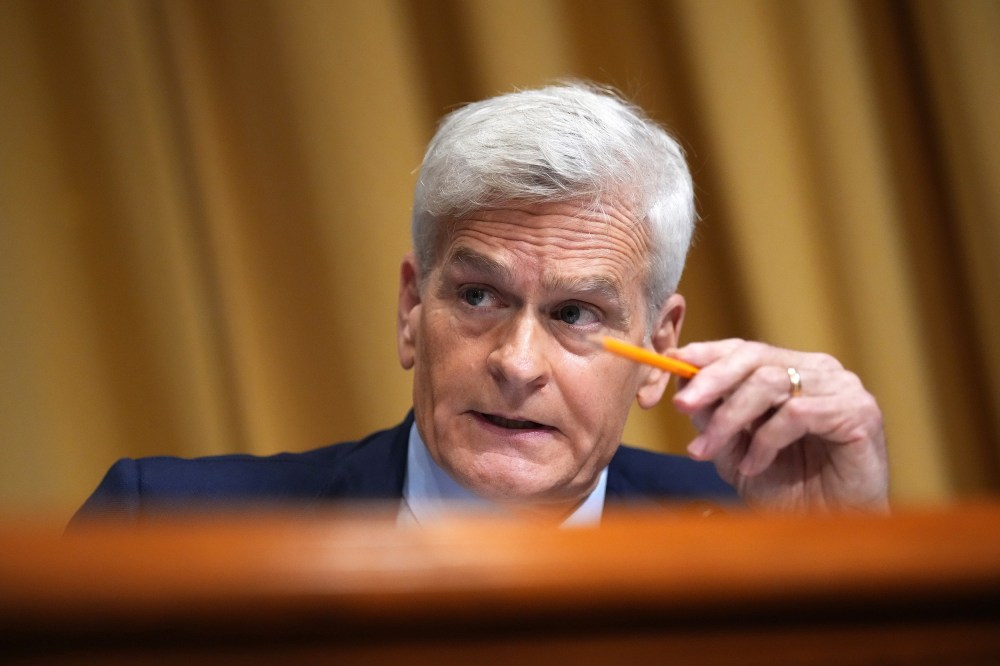With insurance prices under the Affordable Care Act, also known as Obamacare, set to rise on Jan. 1, Republicans are floating a menu of proposals aimed at addressing the expiring health plan subsidies under the law and the resulting premium increases. But the question is, do Republicans — and Democrats, to an extent — really have an appetite for any of these plans?
“It’s just all about willpower,” Rep. Chip Roy, R-Texas, told reporters this week, insisting that there are “dozens” of ways to fix health care.
“If we’ll sit down and do it, we can do it,” Roy said. “And the American people will be the beneficiaries.”
Others are not as optimistic.
Asked about the state of health care discussions on Capitol Hill, Sen. Josh Hawley, R-Mo., told MS NOW he hadn’t heard “a lot of ideas at all,” adding that the lack of real solutions to rising costs “worries” him.“We need to do something such that premiums don’t skyrocket,” Hawley said. “The clock is ticking.”

The central question of the debate boils down to this: What should Congress do about the expiring enhanced ACA subsidies? When those credits go away at the start of 2026, premiums for Obamacare enrollees are set to rise dramatically, with some people seeing their rates double or even triple.
Some Republicans — particularly more moderate members representing battleground congressional districts — have pushed for simply extending the enhanced subsidies for another year to buy more time to negotiate a permanent solution.
But that approach faces notable Republican resistance.
Many GOP lawmakers say further extending the enhanced tax credits is a nonstarter, arguing that the subsidies have only padded the coffers of insurance companies. Extending the subsidies, these Republicans say, would only serve to prop up Obamacare — a program the GOP repeatedly attempted to repeal.
“In the short term, we cannot simply just throw good money after bad policy,” Sen. Mike Crapo, R-Idaho, said on Wednesday.
“I’m not putting a Band-Aid on something that’s broken,” Sen. Markwayne Mullin, R-Okla., told reporters.
The death blow, though, arguably came on Tuesday, when President Donald Trump appeared to all but rule out extending the subsidies, posting on social media that the only kind of health subsidy he would support would be sending the money to consumers — “WITH NOTHING GOING TO THE BIG, FAT, RICH INSURANCE COMPANIES.”
It’s only the latest instance of Trump calling for sending money earmarked for health care directly to people rather than to insurance companies, an idea he’s returned to repeatedly in recent weeks.
We want this to be something that actually benefits people, as opposed to becoming just a messaging something for the campaign trail.”
Sen. bill cassidy, r-la.
The president’s interest has fostered some buzz on Capitol Hill about legislative proposals mirroring that approach, such as a plan from Sen. Bill Cassidy, R-La.
Cassidy’s pitch — not yet formally introduced in legislative form — calls for replacing the premium tax credits with prepaid health savings accounts (HSAs), which would not be used to help pay for monthly premiums, but could be used to reduce the cost of health care expenses like co-payments and deductibles, according to CNBC.
“We’ve got to take into account the president’s wishes, because that’s the way our Constitution is set up,” Cassidy said.
“We want this to be something that actually benefits people, as opposed to becoming just a messaging something for the campaign trail,” he added.
But Cassidy’s proposal is far from the only HSA-centric idea.
Sen. Rick Scott, R-Fla., is working on alternative legislation, which he introduced Thursday. But over in the House, Reps. Kat Cammack, R-Fla., and Greg Steube, R-Fla., previously introduced a bill that conceptually resembles the president’s idea. And Politico reports that Republicans on the House Ways and Means Committee have recently been circulating the legislation for review.

Provided the GOP settles on a plan, it will still face the difficult task of passing it on Capitol Hill. And to get through the Senate, the party will need to corral Democratic support to overcome the 60-vote filibuster threshold.
Cassidy has implored Democrats not to dismiss ideas just because they come from a Republican, but Democrats have been adamant that the only real solution to the subsidies’ expiration is to extend them — at least until both parties can discuss reforms in a more realistic time frame.
But as a broad concept, most Democrats haven’t outright dismissed the idea of sending money directly to Americans.
“Anytime we’re giving Americans direct support or economic help is almost always better than when we convolute it and make it more complex,” Rep. Pat Ryan, D-N.Y., for instance, told MS NOW.
Yet members of the Democratic coalition have major doubts that sweeping reforms can — or should — be attempted in the next few weeks.












